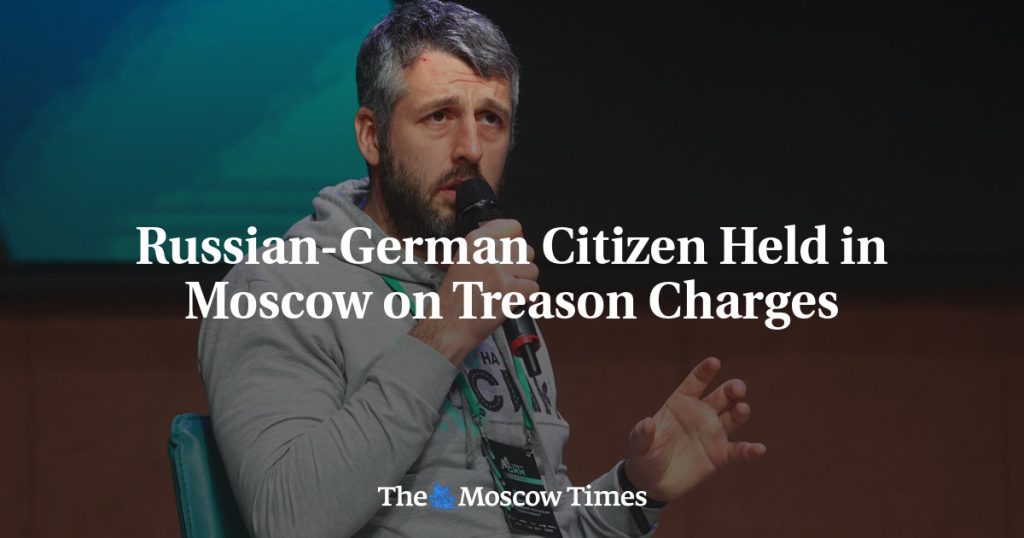A dual Russian-German citizen named German Moyzhes has been detained in Russia on charges of treason in a highly secretive case. Moyzhes, a migration lawyer who helped Russians apply for residence permits in Europe, was arrested in St. Petersburg in May by Russian security services and then transferred to Moscow where he has been held in pre-trial detention. The Lefortovo court in Moscow extended his detention during a recent hearing, but provided no further details about his case as treason cases are classified in Russia. Moyzhes was known as a local urban activist in St. Petersburg, particularly for his work as a pro-cycling campaigner. His arrest and case had not been covered by state media prior to this recent development.
This detention of Moyzhes is part of a trend in Russia where Western citizens have been arrested amid the ongoing conflict in Ukraine. Accusations have been made that Russia is taking these individuals as “hostages” to use as bargaining chips in potential prisoner exchanges. Talks of a major prisoner exchange between Russia and the United States have intensified in recent days, with the recent sentencing of U.S. journalist Evan Gershkovich to 16 years in prison on espionage charges that were deemed baseless. Another U.S.-Russian journalist, Alsu Kurmasheva, was also sentenced to six and a half years in prison for breaching Russia’s strict “military censorship” laws in a separate secret trial. The White House has called for the release of both journalists and negotiations for Gershkovich’s release are ongoing.
In exchange for the release of the U.S. journalists, Russian President Vladimir Putin has implied that he is seeking the release of Vadim Krasikov, a Russian who was convicted in Germany of killing a Chechen former rebel commander in a Berlin park. A German court ruled that the killing was an assassination ordered by the Russian state, and investigative reports have suggested that Krasikov had ties to Russia’s FSB security service. The potential prisoner exchange involving Krasikov and the two U.S. journalists has raised concerns about the use of individuals as political pawns in international negotiations. The situation highlights the complex and tense relations between Russia and Western countries, particularly amid ongoing conflicts and geopolitical disputes.
The arrests of Moyzhes, Gershkovich, Kurmasheva, and Krasikov underscore the challenges faced by individuals caught in the crossfire of international tensions and conflicts. As diplomatic negotiations continue between Russia and Western countries, there is growing concern about the safety and well-being of those detained on various charges. The lack of transparency and information surrounding these cases further complicates the situation, leaving individuals and their families in a state of uncertainty and vulnerability. The use of individuals as political leverage in negotiations reflects a troubling trend in international relations, where human lives are manipulated for strategic gains.
The extended detention of Moyzhes and the sentencing of Gershkovich and Kurmasheva highlight the harsh realities faced by individuals entangled in the geopolitical conflicts between Russia and Western countries. While diplomatic efforts are being made to secure the release of these individuals, the lack of transparency and due process in these cases raises concerns about the fairness and justice of their treatment. As the situation continues to evolve and negotiations progress, the fate of those detained remains uncertain, with their lives hanging in the balance of high-stakes political maneuvering. The international community must remain vigilant in monitoring these cases and advocating for the rights and well-being of those caught in the midst of these complex and volatile situations.


